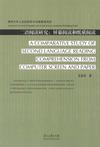二语阅读研究
2011-8
贵州大学出版社
尤春芝
218
《二语阅读研究:屏幕阅读和纸质阅读》建议在基于计算机的多媒体英语阅读教学中,应该考虑到计算规水平和阅读策略的使用,并且应孩在英语阅读教学中增加计算机培训课程,对学生进行计算机技能和基于计算机的阈读策略的训练,目的是为非英语专业学生进行多媒体网络英语学习作好准备。
尤春芝,女,汉族,1966年1月生。1987年7月毕业予贵州天学英语系,获文学学士学位。2001年获西南师范大学外国语学院硕士学位,研究方向为应用语言学。2010年获得泰国苏兰拉里理工大学英语语言研究(英语应用语言学)博士学位。主要从事二语阅读研究、英语网络阅读策略以及语吉学习情感因素研究。在国内外期刊杂志上发表论文十余篇,参加过贵州省教育厅项目。现为贵州大学外国语学院副教援,主要担任非英语专业大学英语教学工作。
CHAPTER I INTRODUCTION1.1 Background of the Study1.2 Statement of the Problem1.3 Purposes of the Study1.4 Research Question81.5 Definitions of the Key Terms 1.6 Significance of the Study 1.7 SummaryCHAPTER II LITERATURE REVIEW2.1 Second Language Reading and Reading Theories 2.1.1 The Nature of Second Language Reading.2.1.2 Theories in L2 Reading 2.2 Text Presentation and Reading Comprehension 2.2.1 Theoretical Background 2.2.2 Research on Text Presentation and Reading Comprehension 2.3 Computer Literacy and Reading Comprehension.2.3.1 Theoretical Background2.3.2 Research on Computer Literacy and Comprehension2.4 Text Familiarity and Reading Comprehension 2.4.1 Theoretical Background 2.4.2 Research on Text Familiarity and Reading Comprehension2.5 Reading Strategies and Reading Comprehension 2.5.1 Conceptual Framework of Reading Strategies 2.5.2 Classifications of Reading Strategies2.5.3 Assessing Reading Strategies2.5.4 Research on Reading Strategies CHAPTER III RESEARCH METHODOLOGY3.1 Rationale for Research Methodology3.2 Subj ects 3.3 In struments 3.3.1 National Computer Rank Examination (Grade One) 3.3.2 Questionnaire 3.3.3 Reading Comprehension Test3.3.4 Semi-Structured Interviews 3.4 Experimental Design 3.5 Research Procedures3.6 Data Analysis……CHAPTER IV RESULTSCHAPTER V DISCUSSION AND CONCLUSIONSLIST OF TABLESLIST OF FIGURES
The finding was similar to the study by Rogers, Regehr, Yeh, and Howdieshell (1998). Since reading from computers could make them forget what they had just read, ruost students reported that it was not easy to remember what was read. Some students claimed when they read on computers they may lose patience, or want to stop reading. Some other students explained the reason why they cannot achieve more from computers than from paper. 5.1.6.3 Affective Components of Attitudes towards Reading from Computers and from Paper From students' responses, it can be found that using computers or reading on them could make the students feel uncomfortable and tense, even feel scared or intimidated. Also it was not easy to calm down or to concentrate on the screens to read carefully. In addition,reading on computers could tire their eyes. One of the possible reasons is that the students may be afraid of making mistakes or they may be afraid to delete the useful information. Another reason is that the way that reading on computers was rather different from that on traditional paper format, for example,scrolling up and down with mouse on computer screens may.make theeyes tiresome. The third reason is that the students thought the level oflearning from computers was not better than paper, even with the wide use of computers, because sorue students claimed that they always forgot what they have read and easy to lose patience, even wanted to stop reading. ……
